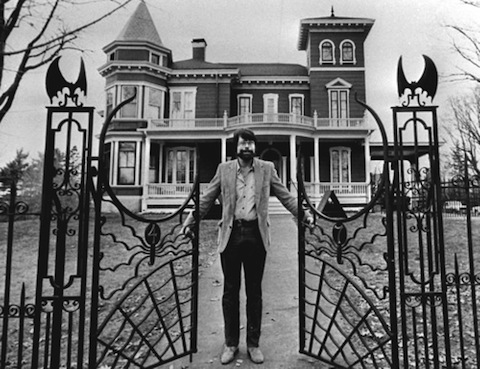
Moving from Atlah to Queens has been an arduous process, but the act of sifting through one’s detritus has not been without its small pleasures. I’ve had occasion to stumble upon various old magazines that I kept around for one reason or another, and flipping through their pages has often reminded me of why I saved these publications from the rubbish bin. One of my favorite finds was a 2006 issue of The Paris Review, which I preserved on account of this fantastic Stephen King interview about the art of writing. I was deep into bringing Now the Hell Will Start to life when I bought the mag, and I remember being greatly comforted by King’s descriptions of his daily struggles. This passage, about the trials and tribulations of revision, makes the whole issue worth the price of admission:
Every book is different each time you revise it. Because when you finish the book, you say to yourself, This isn’t what I meant to write at all. At some point, when you’re actually writing the book, you realize that. But if you try to steer it, you’re like a pitcher trying to steer a fastball, and you screw everything up. As the science-fiction writer Alfred Bester used to say, The book is the boss. You’ve got to let the book go where it wants to go, and you just follow along. If it doesn’t do that, it’s a bad book. And I’ve had bad books. I think Rose Madder fits in that category, because it never really took off. I felt like I had to force that one.
There’s also a bit about how King spent the early part of his career revising while twisted on liquor and/or drugs—something I find tough to process, as my rudimentary experiments with non-sober editing have always proven disastrous. My problem with such an approach is that intoxicants totally strip away my sense of judgment—after a couple of Crown Royals on ice, I think the most florid, artificial prose sounds spot-on. Maybe my particular neural chemistry would respond better the Murakami approach to downshifting from writing to revising.
(Image via Looking for the Magic)


Jordan // Jul 14, 2011 at 10:38 am
Endorphins will definitely put you in a different mental state, though hopefully one with a bit more clarity.
minderbender // Jul 15, 2011 at 6:29 pm
And what about caffeine? Does it hurt or help?
Brendan I. Koerner // Jul 16, 2011 at 10:09 am
@Jordan: I’m going to put that theory to the test. Gonna try going for a run every day after six to eight hours of writing. We’ll see whether it makes me a better reviser.
@minderbender: I’ve been wondering this for a long time. I’m a pretty serious caffeine addict–have to have two cups in the morning. But I realize that it can make you crash in the early afternoon if you’re not careful. The key for me is to avoid a lunch break, which tends to make me tired if I’m coasting down from a morning caffeine rush.
Gramsci // Jul 16, 2011 at 2:01 pm
Did you remember any of King’s interview when you were doing the AA story? His analogy for AA and the belief in a greater power is, I should say, unique.
Brendan I. Koerner // Jul 17, 2011 at 9:31 am
@Gramsci: Glad you noticed that. I saw it while re-reading the interview in preparation for this post. It had completely slipped my mind–prior to working on that AA piece, references to the organization generally made little impression on me. But now I zero in on any and all references.
The way King phrases his stance may be unique, but I”m not sure his general attitude is. Heard this a bunch of times in rooms from self-described atheists/agnostics–that they only think of a Higher Power in the context of AA. I specifically remember a guy saying that when he prays, he begins with something along the lines of, “To my Higher Power, who I don’t really believe in…” And yet, like King, he makes that prayer every day, because it’s so integral to his sobriety.